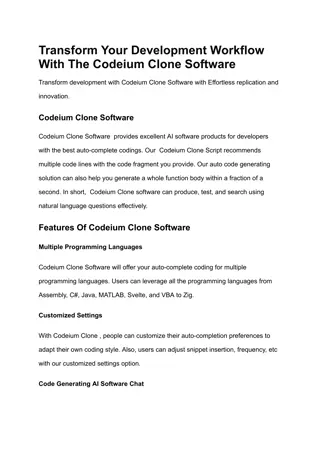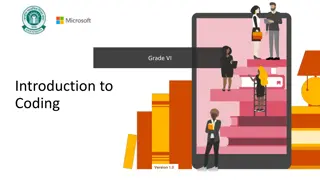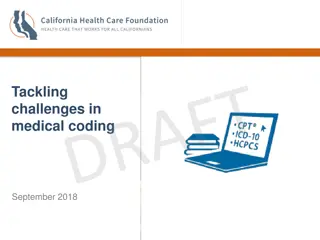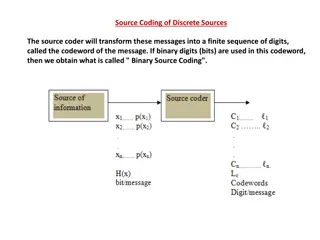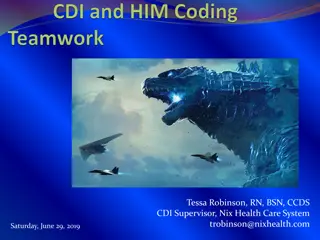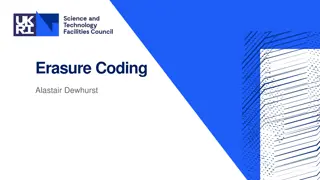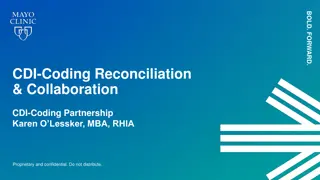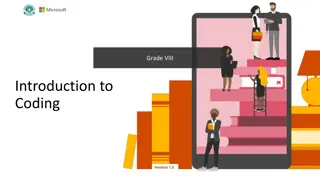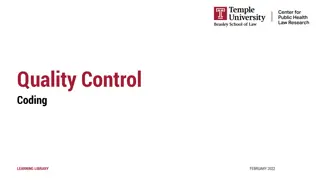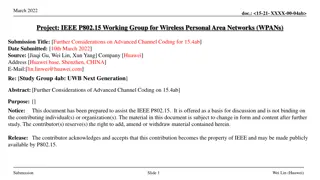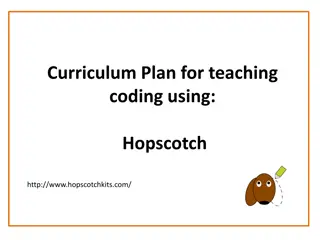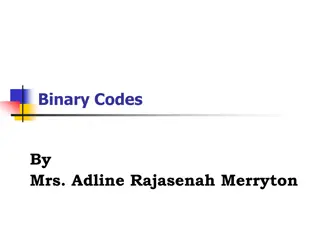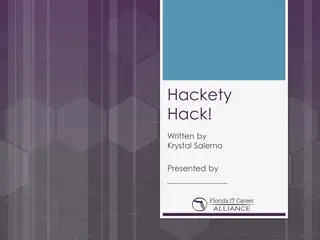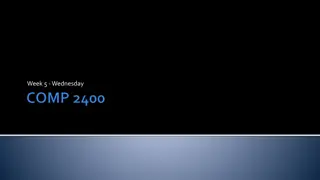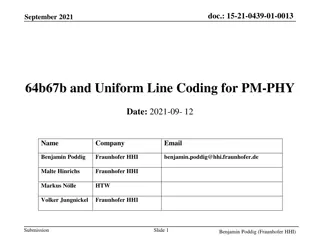Coding Tips and Practices for Success
Explore essential coding practices such as working with linked files, debugging techniques, rubber duck debugging, frank encoding, and more to enhance your coding skills and efficiency. Discover the core elements of HTML, CSS, and JavaScript and learn how to optimize your coding process for better results.
Uploaded on Oct 05, 2024 | 0 Views
Download Presentation

Please find below an Image/Link to download the presentation.
The content on the website is provided AS IS for your information and personal use only. It may not be sold, licensed, or shared on other websites without obtaining consent from the author. Download presentation by click this link. If you encounter any issues during the download, it is possible that the publisher has removed the file from their server.
E N D
Presentation Transcript
Agenda Ideas (Just three things!) Group practice Solo work
Just three things Working with linked files Playing with someone else s code Debugging
Linked files Relationships between HTML, CSS, and javascript HTML is the skeleton CSS is the skin javascript is the movement
Linked files Relative vs. absolute links Tags <link rel ="stylesheet" type="text/css" href="css/fullpage.css" /> <link href = "https://fonts.googleapis.com/css?family=Source+Sans +Pro:400,900" rel="stylesheet"> <script type="text/javascript" src= "js/fullpage.js > </script>
Frankencoding Why? Integrate new tools Learn new things Don t reinvent the wheel! Where? Tutorials Templates W3 schools How? One piece at a time
Rubber Duck Debugging 1. Beg, borrow, steal, buy, fabricate or otherwise obtain a rubber duck (bathtub variety). 2. Place rubber duck on desk and inform it you are just going to go over some code with it, if that s all right. 3. Explain to the duck what your code is supposed to do, and then go into detail and explain your code line by line. 4. At some point you will tell the duck what you are doing next and then realise that that is not in fact what you are actually doing. The duck will sit there serenely, happy in the knowledge that it has helped you on your way. (Rubberduckdebugging.com )
Minimum Viable Test Case 1. Remove code until you have the minimum possible amount of code that exhibits the problem. 2. Test every time you remove a line of code. 3. Eventually the problem will go away. It was in that line you just deleted! 4. Save your code before you start deleting stuff. (Rubberduckdebugging.com)
Group practice Fullpage.js: https://alvarotrigo.com/fullPage/ Two examples: http://kairos.technorhetoric.net/23.1/inventio/salt er-et-al/index.html http://kairos.technorhetoric.net/23.1/inventio/hel ms/index.html Simple, but can become complex Let s make something boring and unreadable into something exciting and legible!
Group practice In a group of three, you will start making a web version of the TCU benefits guide I ve done the first few pages, you will do another page or two (any page you want) One person codes, the others look on and help
Showcase What decisions did other groups make? What was the most difficult part? What was most exciting?
Solo ideas Continue creating the Benefits page Try other fullpage.js extensions and themes Look at various tutorials on w3schools Responsive design Menus
Just three last things Try stuff Break stuff Fix stuff



